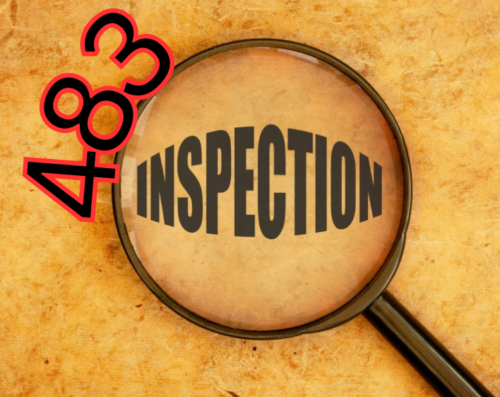

Discussion forum for Pharma Quality events, Regulatory Actions
Warning letters, 483s, Recalls, Import Alerts, Audit observations

Warning letters, 483s, Recalls, Import Alerts, Audit observations

The USFDA inspection of Hetero Labs Ltd, Unit-IX (FEI: 3009093782), Narasapuram, India, conducted in September 2025 by investigators Tamil Arasu, Pratik S. Upadhyay, and Lisa L. Flores, concluded with the issuance of a Form 483 citing six major observations. These findings reveal systemic lapses in cGMP compliance and data integrity, raising serious concerns about quality and operational oversight and product integrity.
The facility was found to be collaborating parallelly with an unregistered testing laboratory nearby that routinely analysed intermediates and finished APIs from the Hetero facility. This lab maintained uncontrolled notebooks documenting raw data, Out-of-Specification (OOS) results, and other related details. The OOS list of Hetero Unit IX failed to log and investigate Out of specifications (OOS) recorded by the unregistered lab, with internal analytical records reflecting only passing results. These batches were consumed in further manufacturing stages.
No quality agreement existed between Hetero Unit-IX and the unregistered lab. Even a training agreement produced by Head of HR was found to be falsified—signed by a manager who was not employed at the time, with mismatched signature patterns.
Inspectors discovered torn GMP documents—including balance printouts and raw data on white paper—discarded in scrap bags in the Quality Control unit. These Quality Unit management confirmed the fragments to be original records, raw data and metadata pertaining to QC units and these documents should not have been destroyed, exposing failure of the Quality Unit and breakdown of Quality Unit oversight over cGMP operations at the site.
Intermediates and finished APIs were released to an offsite warehouse without documentation. There were no records or procedures for receiving, inspection, storage condition monitoring, or investigating any excursions oof environmental conditions. The undocumented warehouse was lacking defined areas and documentation for segregation of different APIs, quarantined materials, rejected materials, and returned goods.
Batch production records failed to reconcile material quantities with actual yields. There were additional drums of material than documented in batch records. Additional drums of intermediates were found in the warehouse even when the batch / lot is documented to be completely consumed. These discrepancies render it not possible to determine, account for the status of material in the supply chain, conduct effective recall or retrieval if quality issues are observed. There was no reconciliation of discrepancy between number of drums labelled and the number of drums documented as produced further eroding supply chain traceability.
The inspection reveals a coordinated manipulation of cGMP operations—fabricating passing results in official QC lab, generating undocumented material quantities and moving to offsite warehouse, manipulation of analytical and manufacturing records. It is surprising to see Firms fail to recognise the fallacy of such systems – a small slip along the chain of operations, few discrepancies in documents or actions, a simple whistle blower incident exposes the fragility leading to irreversible reputational damage.
Integrity and compliance in manufacturing operations are the pillars for pharmaceutical operations. From the context of the USFDA 483 observations discussed, integrity in recoding actual data, defining appropriate specifications in line with actual process requirements and process capability, documenting deviations, investigating discrepancies, implementing the corrective actions (CAPAs) to prevent recurrence of the failures, building a Quality Culture of integrity and trust are essential to ensure sustainable operations and long-term stakeholder value.
USFDA 483: Hetero Labs Limited (September 2025)
Leave a Comment
You must be logged in to post a comment.